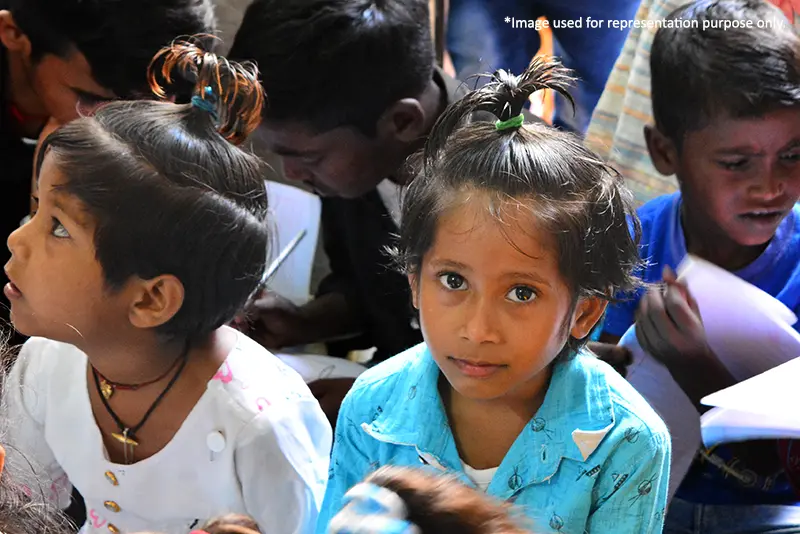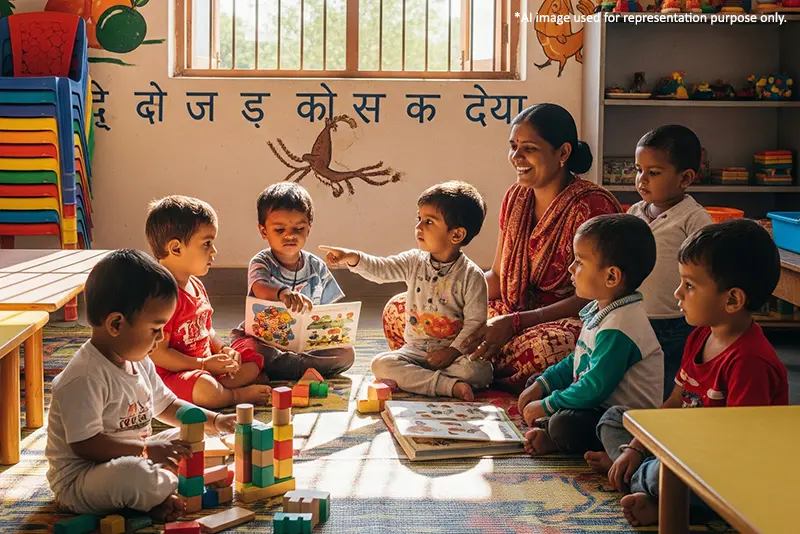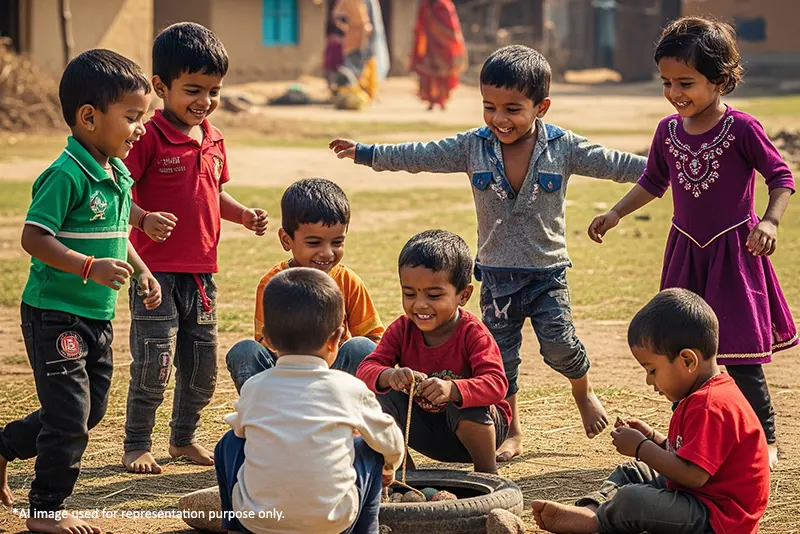
Early Childhood Care and Education (ECCE) is where it all begins. 0-6 years is the age when infants grow their curiosity and build a strong foundation as their brains develop. But in underserved communities, many children face obstacles right from the start. This often happens due to a lack of awareness among parents, poor healthcare, or limited access to quality early learning.
CRY helps bridge this gap by working closely with Anganwadi Centres to ensure children receive the right care and support from the beginning.
Let us explore why ECCE is so important and how CRY is making it a reality for children in marginalised communities.
How ECCE plays a vital role
For underprivileged children, access to Early Childhood Care and Education (ECCE) can make all the difference between falling behind and getting a fair start. Let’s understand how:

How CRY is supporting children’s growth through ECCE
CRY UK project team makes sure that mini Anganwadis, head Anganwadis, and model Anganwadis are running smoothly.
Mini Anganwadis are set up in areas with fewer than 150 children. Head Anganwadis cater to a larger number of children and have more teachers and support staff. When the head Angangwadi centres meet all the guidelines under the Integrated Child Development Service (ICDS) program and follow the best practices in early childhood care and education, they are upgraded to model Anganwadis.
Keeping a check on children’s attendance
CRY UK project team, along with the local Women’s Group, regularly checks if children aged 0 to 6 are attending Anganwadis for their preschool education. If a child is missing for too long, the team visits their home, understands the reason, and helps them get back to class.

Making sure learning never stops
CRY UK project team keeps an eye on the learning materials available at these centres. If anything is missing or in short supply, they step in quickly to fill the gap so that the quality of education doesn’t suffer.
Training the teaching staff
CRY UK project team organises regular training sessions for Anganwadi workers to help them better understand their roles and responsibilities. These sessions guide them on how to engage young children, maintain records, and follow best practices in early education and care.
Checking infrastructure and basic facilities
CRY UK project team also monitors whether children have access to clean drinking water, toilets, and other basic facilities. In case there aren’t enough teachers or health workers, they coordinate with authorities to make sure proper staff is appointed.
Looking into food quality
To ensure children get proper nutrition, CRY UK project team checks the quality of food served at the centres and also what’s given through the Take Home Ration. If they find any issues, they immediately raise it with the concerned authorities.
Conclusion
CRY UK has come a long way in helping children access ECCE, but there’s still a long way to go. Your continued support can ensure every child gets a happier, stronger start. Donate today to make that difference from the beginning.